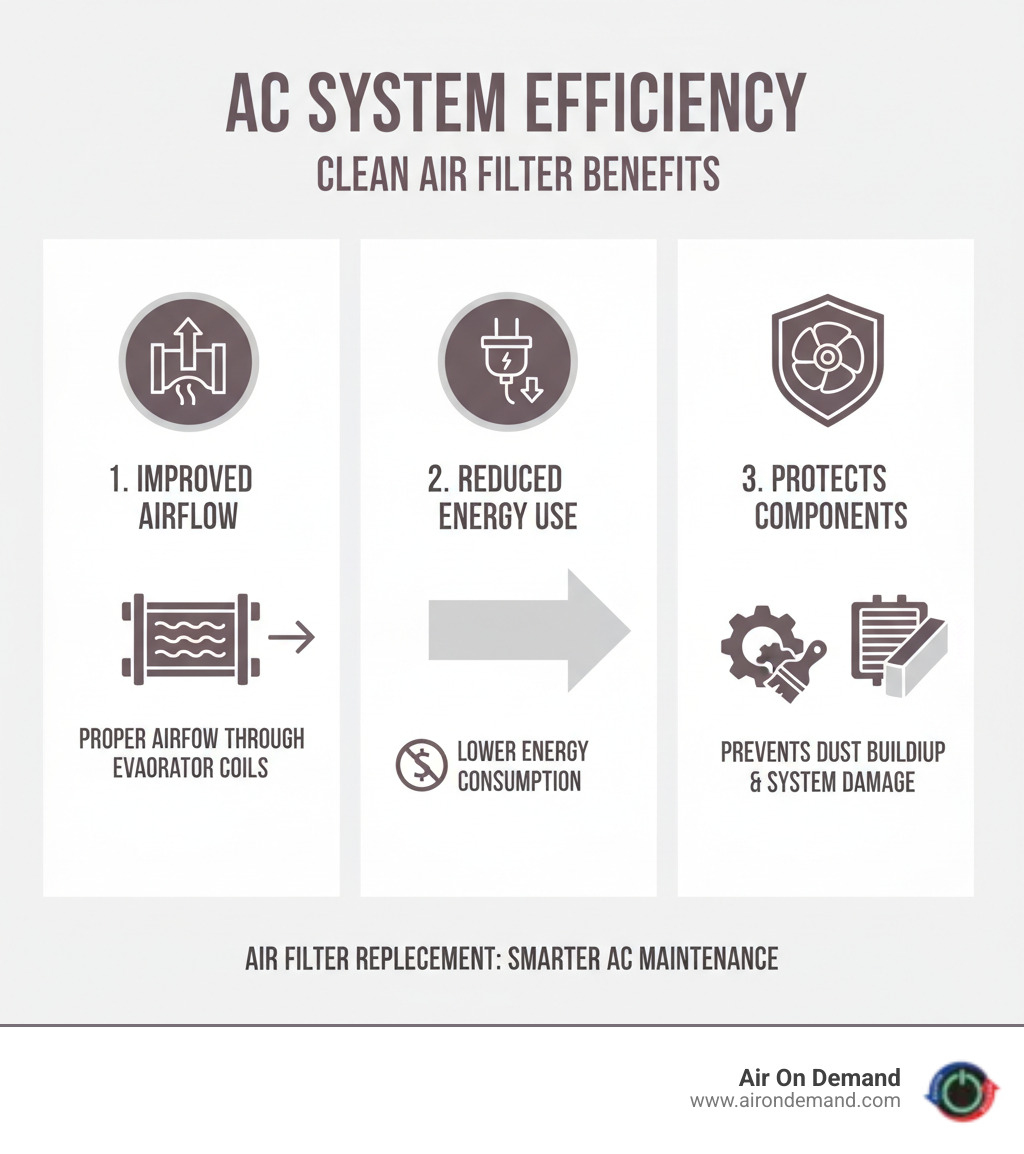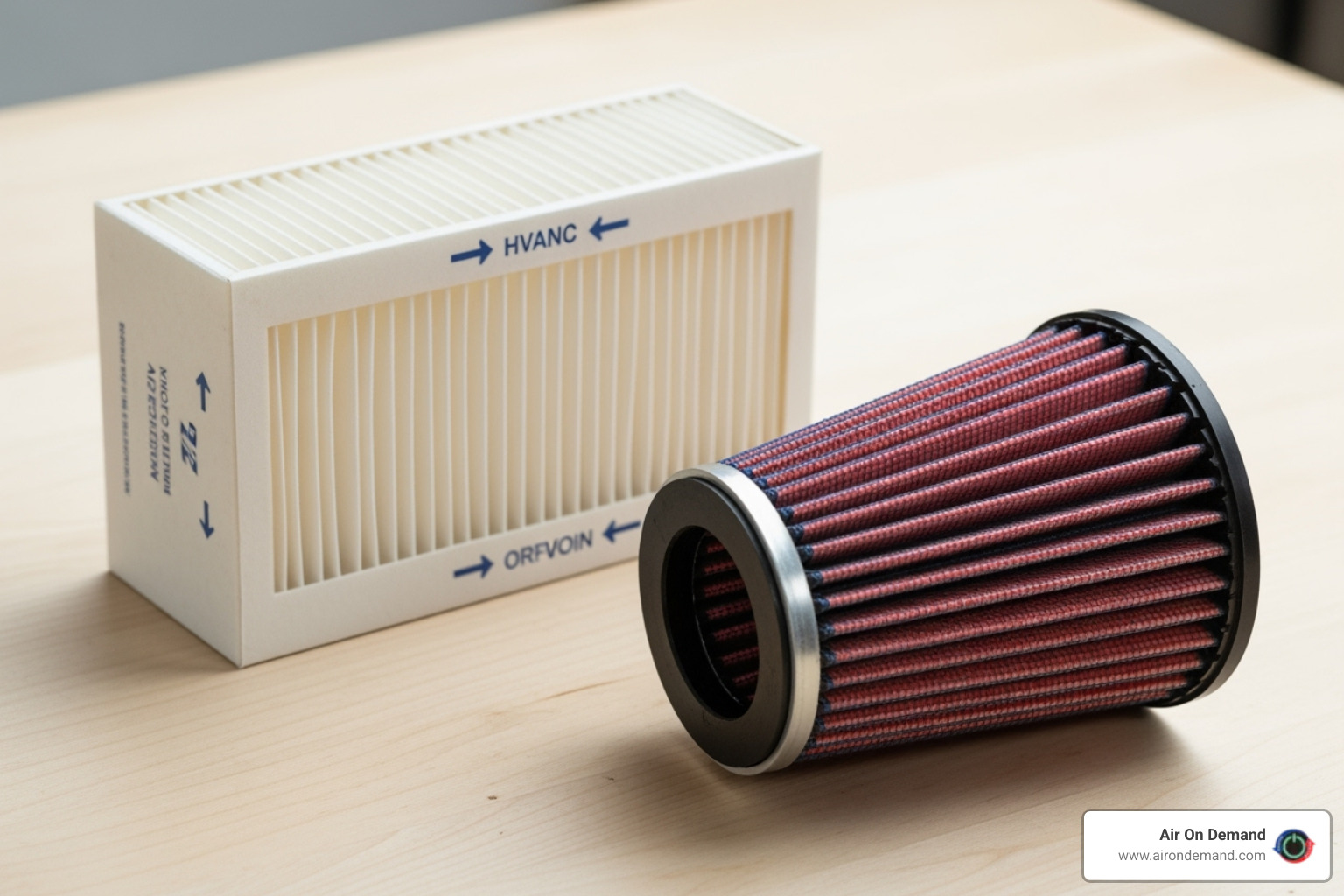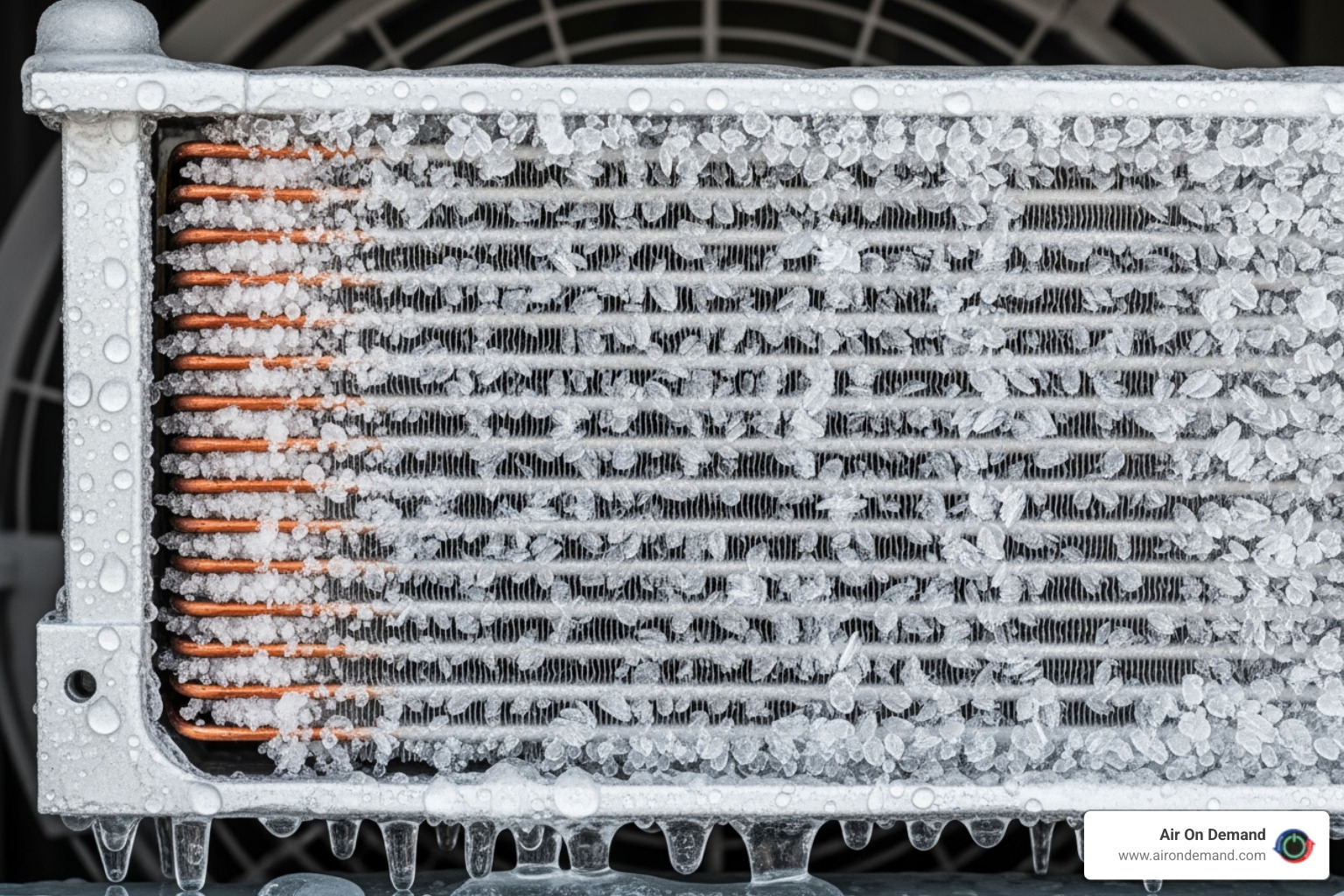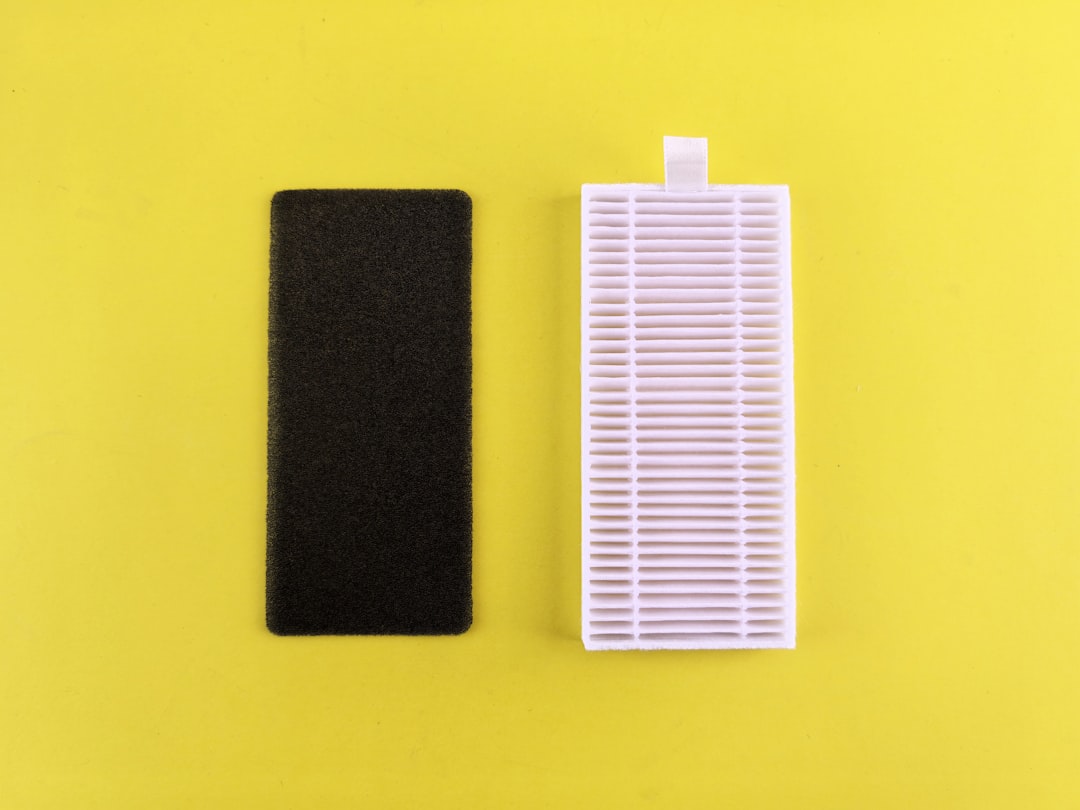Why Air Filter Replacement is Your AC's Best Friend
Air filter replacement is the simplest yet most impactful maintenance task for your AC system. When a filter gets clogged with dust and debris, your system works harder to push air through your home, driving up energy bills and risking expensive damage.
Quick Air Filter Replacement Guide:
- Standard filters: Replace every 30-90 days
- Pet owners: Replace every 60 days
- Allergy sufferers: Replace every 30 days
- Location: Usually in a return air duct or near the air handler
- Direction matters: An arrow on the filter shows airflow direction
Your AC system moves thousands of cubic feet of air daily, carrying dust, pollen, and dander that get trapped in the filter. A clean filter protects your HVAC components while keeping your indoor air fresh. A dirty filter can force your system to work up to 15% harder, which shows up on your energy bill.
Regular maintenance, such as cleaning filters, help to keep electricity costs low, according to HVAC manufacturers. This guide covers everything from choosing the right filter to recognizing when DIY fixes aren't enough, helping you save money and keep your home comfortable.

Handy Air filter replacement terms:
Clarifying Your Filters: Home AC vs. Your Vehicle
When you hear "air filters," you might think of your home's HVAC system or your car. While both clean air and protect important components, they serve very different functions.

Your home's air filter replacement is about maintaining HVAC health and indoor air quality. It's a rectangular filter that slides into a return air vent or air handler. Your vehicle, however, has multiple filters protecting different systems. Understanding these differences helps you stay on top of maintenance for both your home and your commute.
Engine and Cabin Air Filters Explained
Your car uses two main air filters. The engine air filter protects your engine by blocking dirt and debris from entering during combustion, which is vital for power and fuel efficiency. The cabin air filter cleans the air you breathe inside the car, trapping pollen, dust, and smog. This is especially important for those with allergies.
Fuel and Transmission Filters: A Quick Overview
Beyond air filters, your vehicle relies on other filters to run smoothly. The fuel filter cleans gasoline before it reaches the engine, preventing clogs in fuel injectors. The transmission filter catches metal shavings and debris in your transmission fluid, preventing rough shifting and expensive damage. Staying on top of vehicle maintenance prevents small problems from becoming big headaches—just like regular air filter replacement keeps your home's AC system running efficiently.
The Ultimate Guide to HVAC Air Filter Replacement
Now that we've clarified the difference between car and home filters, let's focus on your HVAC system. Air filter replacement is a simple investment in your home's air quality and your AC's longevity. It's a rare win-win where a small effort pays off big time.

Your HVAC filter works around the clock to maintain system health, improve air quality, and control energy bills. The best part? It's simple enough for anyone to do, yet powerful enough to make a real difference.
What is an AC Air Filter and Why is it Crucial?
Your AC air filter is your home's first line of defense against dust, pollen, pet dander, and mold spores. It protects you from breathing in these particles and prevents your expensive HVAC components from getting clogged with debris. When internal parts get dirty, your system has to work much harder.
A clean filter ensures proper airflow, allowing your system to work smoothly and efficiently. A clogged filter is like trying to breathe through a dirty sock—it forces the system to struggle, leading to stress and reduced performance.
Signs You Need an AC Air Filter Replacement
Your AC will tell you when it needs a new filter. Look for these warning signs:
- Reduced airflow: If the air from your vents feels weaker than usual, a dirty filter is likely restricting flow.
- Increased energy bills: A system working overtime to push air through a clog uses more energy.
- Dust buildup around vents: If you notice more dust on your registers, the filter may no longer be trapping particles effectively.
- Unusual AC noises: Whistling or humming can indicate your system is straining against a blockage.
- Allergy flare-ups: A dirty filter can't trap allergens, allowing them to circulate freely through your home.
- Visible dirt on the filter: If you hold the filter up to a light and can't see through it, it's time for a change.
How Often Should You Replace Your AC Filter?
The standard answer is every 90 days, but your home's needs may vary. Consider these factors:
- Pet owners: With extra hair and dander, change your filter every 60 days. For multiple pets, consider every 30-45 days.
- Allergy sufferers: To maintain clean air and reduce symptoms, monthly air filter replacement is recommended.
- Dusty environments: If you live near construction or in a dusty area, change your filter every 30-60 days.
- Smoking indoors: Smoke particles clog filters quickly. A monthly change is essential.
- Household size: More people mean more activity and dust. Busy homes may need more frequent changes.
Choosing the Right Filter: Understanding MERV Ratings
MERV (Minimum Efficiency Reporting Value) rates a filter's ability to catch particles on a scale of 1 to 20. Higher numbers mean better filtration.
- Basic filters (MERV 1-4): Inexpensive fiberglass filters that catch large particles like dust bunnies.
- Standard pleated filters (MERV 5-8): A good balance for most homes, capturing household dust, pollen, and mold spores.
- Superior filters (MERV 9-12): Ideal for families with specific needs, these trap finer particles like dust and auto emissions. MERV 11 is often a great choice for improved filtration without overly restricting airflow.
- High-efficiency filters (MERV 13-16): Provide hospital-level air cleaning, trapping bacteria, smoke, and virus carriers. These can restrict airflow in systems not designed for them.
- HEPA filters (MERV 17-20): Offer the ultimate filtration but are too restrictive for most residential systems without modification.
The key is to balance filtration with airflow. A higher MERV rating means cleaner air but more resistance. Most residential systems work well with MERV 8-11 filters. Check with an HVAC professional to find the best fit for your system. For more on this topic, the Scientific research on indoor air quality from the EPA is a great resource.
The Payoffs and Pitfalls of AC Filter Maintenance
Think of air filter replacement as a small investment that pays massive dividends. A little effort upfront saves you from major headaches down the road. The long-term impact on your comfort, wallet, and system longevity is significant.

The difference between proactive and reactive maintenance is like changing your car's oil regularly versus waiting for the engine to seize. One keeps you cruising smoothly, while the other leaves you with a hefty repair bill.
The Big Benefits of Regular Replacement
Staying on top of air filter replacement brings tangible rewards.
- Improved energy efficiency: A clean filter lets your AC system breathe easily, allowing it to operate as designed.
- Lower utility costs: An efficient system uses less energy, which is reflected in your monthly bills.
- Better indoor air quality: Fresh filters trap dust, pollen, and dander, which is life-changing for those with allergies.
- Extended HVAC lifespan: Preventing dirt buildup on sensitive components gives your system a longer, healthier life.
- Consistent cooling performance: Proper airflow ensures conditioned air is delivered evenly throughout your home.
- Fewer repairs: Many emergency service calls trace back to a dirty filter. Regular changes prevent these issues.
The Costly Consequences of Neglect
Ignoring your filter creates a domino effect of expensive problems.
- Restricted airflow: A clogged filter chokes the system, forcing everything else to work harder and less effectively.
- Frozen evaporator coils: When airflow drops, the coil can't absorb enough heat, causing ice to form and potentially damaging the system.
- System overheating: The motor and other parts rely on airflow to stay cool. A blockage can cause them to overheat.
- Increased strain on components: The motor, compressor, and fan all work overtime, leading to premature wear and tear.
- Expensive damage: This strain can lead to a burned-out fan motor or a failed compressor—costly repairs that could have been avoided.
- Poor air quality: A dirty filter can become a breeding ground for mold and bacteria, contaminating the air it's supposed to clean.
DIY vs. Professional Help: A Homeowner's Guide
Here's the good news: air filter replacement is a perfect DIY task! We love empowering homeowners to take charge of simple maintenance. It's satisfying, saves money, and keeps your system running smoothly between professional visits.
However, it's just as important to know your limits. While changing a filter is straightforward, some AC issues require the trained eye and specialized tools of an HVAC professional. Safety should always come first.
A Step-by-Step Guide to DIY Air Filter Replacement
Ready to tackle your first air filter replacement? The process takes less than 15 minutes.
- Turn off the power: Switch your thermostat to "off" and flip the circuit breaker for your air handler or furnace for safety.
- Locate the filter slot: It's either behind a large return air grille on a wall or ceiling or in a slot at the air handler unit itself.
- Note the size and airflow direction: Before removing the old filter, check the dimensions printed on the frame (e.g., 16x25x1) and note the direction of the airflow arrow.
- Remove the old filter: Slide the old filter straight out. Have a trash bag ready to catch any dust.
- Insert the new filter correctly: Slide the new filter in, making sure the airflow arrow points in the same direction as the old one (toward the furnace or air handler).
- Restore power: Close any access panels, flip the breaker back on, and turn your thermostat back on.
That's it! You've just given your AC a fresh start.
When to Call a Professional for AC Service
While we encourage DIY maintenance, some problems require professional expertise.
- Frozen coils: Ice on your indoor or outdoor unit signals a serious issue like low refrigerant that needs a professional diagnosis.
- Strange noises or smells: Grinding, squealing, or burning odors indicate mechanical or electrical problems that need immediate attention.
- AC not cooling effectively: If your system runs constantly but your home stays warm, it could be a compressor or refrigerant issue.
- Water leaks: Leaks around your indoor unit can point to a clogged drain line, which can cause significant water damage if ignored.
- Electrical issues: Repeatedly tripped breakers or burning smells are serious hazards that require a professional.
When you're facing complex problems, our team at Air On Demand is here to help. We specialize in fast, reliable diagnostics and repairs. You can find more info about our AC repair services on our website.
Frequently Asked Questions about Air Filters
We've answered countless questions about air filters over the years. Here are the straight facts on some of the most common ones.
What happens if I put my air filter in backwards?
Installing a filter backwards causes real problems. The arrows on the frame indicate the direction of airflow, and reversing it makes the filter much less effective.
First, it causes airflow restriction. Your system has to work harder to pull air through, increasing strain and energy use. Second, its effectiveness is reduced, meaning more dust and debris get through to your sensitive HVAC components. Finally, some filters can even collapse under the pressure, allowing unfiltered air to bypass the system entirely. Always double-check the arrows!
Can I clean and reuse my disposable air filter?
We understand the desire to save money, but cleaning disposable filters is counterproductive. These filters are not designed to be washed or vacuumed.
The process damages the delicate fibers, reducing their efficiency. It also pushes dirt deeper into the filter media, clogging it permanently. Worse, if the filter doesn't dry completely, it creates a risk of mold growth, which then gets circulated through your home.
If you want a reusable option, invest in a washable filter designed for that purpose. They cost more upfront but can be economical over time if maintained correctly.
Does a dirty air filter affect my heating in the winter?
Absolutely. Your furnace and air conditioner typically share the same air handler and ductwork, meaning they use the same filter. Whether you're heating or cooling, air moves through that filter.
A clogged filter restricts airflow to your furnace just as it does to your AC. This forces your heating system to work harder, leading to higher energy bills and uneven heating. In some cases, it can cause the furnace's heat exchanger to overheat and shut down as a safety precaution, potentially leading to damage.
Air filter replacement is a year-round commitment to keeping your entire HVAC system running smoothly and efficiently.
Conclusion
From understanding MERV ratings to mastering air filter replacement, you now have the knowledge to keep your AC system healthy. The bottom line is simple: changing your air filter regularly is the easiest and most effective way to care for your home's comfort system.
For just a few minutes of your time every few months, you protect a valuable system, keep energy bills in check, and breathe cleaner air. We hope this guide has given you the confidence to tackle this simple but crucial task.
Of course, it's also important to know your limits. While we love empowering you with DIY tips, some problems require professional hands. If you're dealing with frozen coils, strange noises, or a system that just won't cool, our expertise shines.
At Air On Demand, we've built our reputation on being there when you need us most. Whether you're in Miami, Cutler Bay, or a surrounding area, we bring fast service, real-time updates, and the peace of mind that comes with strong Daikin warranties. Your comfort is our mission. Contact us for comprehensive AC maintenance and let's ensure your system keeps you cool for years to come.





